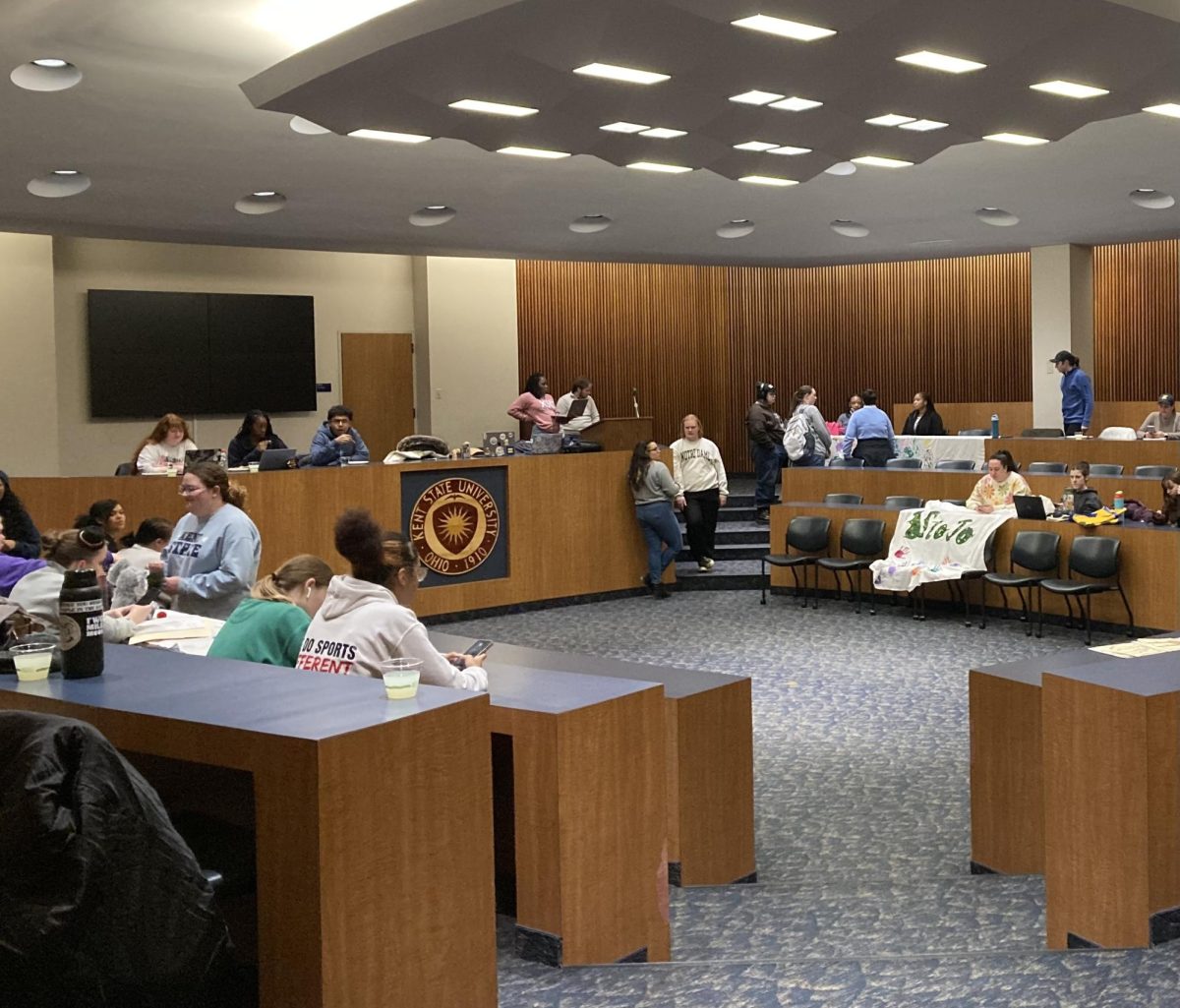Most residence halls will experience changes to resident restrooms after University Housing sent out an email Feb. 18 detailing the effects SB 104 will have on living conditions. Kent Interhall Council held an open forum meeting later that night to answer questions and address student concerns.
Some residence halls have stalls in their bathrooms which defines that restroom as multi-stall. SB 104 prohibits multiple genders from using multi-stall bathrooms.
Jill Jenkins, University Housing senior executive director, attended the meeting.
“There is what we call a swing door that usually gets shut when custodial is cleaning one half [of the bathroom],” Jenkins said. “They close that half so they can clean it, and then they go to the other side and clean that half, and then they open it when they leave. Instead of operating that way, we’re going to have it closed permanently so that one side of the bathroom will become single occupancy [universal] and the other side will be gendered.”
Jenkins said the gendered side of bathrooms will be determined by the predominant gender on that floor or wing.
According to the email, signage will start to be updated Feb. 19 so that the university will be in compliance with SB 104 by the Feb. 25 deadline.
“Students are going to be inconvenienced in some cases,” Jenkins said. “It’s going to change the dynamic.”
Amanda Feaster, director of Student Accessibility Services, and Morgan Woodin, coordinator of operations and special projects for the Division of People, Culture and Belonging gave a short presentation about SB 104.
Feaster and Woodin have made multiple trips to various student organizations to give the presentation.
Students have consistently brought up concerns about enforcement of the bill, specifically if a student is found to be using a designated restroom that does not correspond with their biological sex.
“I would say nobody’s going to be none the wiser because students are going to follow the signs that make sense for them,” Jenkins said. “Part of our process is not to enforce which bathroom students are using, it’s just to provide the signage for those who want to use a certain bathroom a lot. I anticipate a lot of our students are going to want to use single occupancy because it provides more privacy.”
An increase of bills targeting higher education institutions have been going through the Senate, the most recent being SB 1, which bans DEI programs. The Senate passed the bill on Feb. 12.
“There is a lot of legislation coming, and it’s going to impact higher education,” Jenkins said. “What the ripple effect is for the dorms? It’s hard to know. Whether it’s specifically targeting the dorms, there’s nothing I’ve seen that makes me think that there’s something coming. We’re being vigilant.”
Aryn Kauble is a reporter. Contact him at [email protected].



